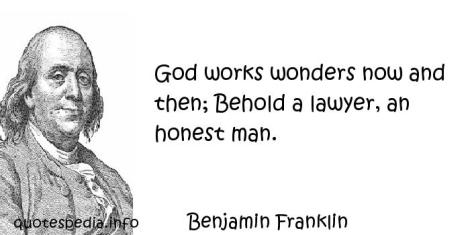That you may long continue to be the blessing of your country, is the wish of all its friends: and that you may not only live to enlighten and better mankind, but continue to do so, with freedom from sickness and pain, is the earnest prayer of, Honoured and Dear Sir Your most devoted and obliged servant, John Carroll
Letter from John Carroll to Benjamin Franklin, April 2, 1787
Rome had a problem. Prior to the American Revolution the Catholic priests in the thirteen colonies, approximately two dozen in number had been under the ecclesiastical jurisdiction of Bishop Richard Challoner, Apostolic Vicar of London. Challoner died on January 12, 1781, at the age of 89. His successor, Bishop James Talbot, interestingly enough the last priest in England to be tried, twice, for saying Mass (each time he was acquitted due to lack of evidence), disclaimed any jurisdiction of the Church in the new United States. Something had to be done to set up an organizational structure for the Church in America, although knowledge about the situation of the Church there was rare in Rome. Fortunately in nearby France there resided an American whose advice might be helpful.
Benjamin Franklin, American Minister to France, by 1783 had reached a pinnacle of international fame that no American before him, and few since, have attained. It was therefore not surprising that when the Vatican was mulling the establishment of an American episcopate, that the idea was hit upon to ask the advice of Dr. Franklin. Thus is was that the Papal Nuncio to France, Archbishop Giuseppe Doria Pamphili addressed a short note to Franklin:
The 23. July 1783.
Before the revolution which has taken place in N. America, the Catholics and missionaries of those provinces depended in spirituals on the apostolic vicar residing at London. It is well known that this arrangement can no longer take place; but as it is essential that the catholic subjects of the united States should have an ecclesiastic to govern them in what concerns religion. The congregation de propaganda fides, for the establishment and preservation of missions, has come to a determination, to propose to Congress to establish in some city of the und. States of North America, one of their catholic Subjects, with the powers of Apostolic Vicar and with the character of Bishop, or simply in character of Apostolic Prefect. The establishment of a Bishop or apostolic vicar appear’d most convenient, in as much as the catholic subjects of the united States would have it in their power to receive confirmation and orders in their own country, without being obliged for this purpose to betake themselves to a Country under foreign domination and as it might as some times happen, that among the subjects of the united States, there might none be found to take on himself spiritual government, whether as a Bishop or apostolic Prefect, it would be necessary in such a Case that Congress should consent to the person they should chuse to it among the subjects of a foreign nation, most friendly to the und. States.
Giuseppe Doria Pamphili
Franklin advised the Archbishop that the American Congress had no power over any religion in the United States. While suggesting that perhaps a French bishop might have temporary jurisdiction of the Church in America, he warmly sang the praises of Father John Carroll, SJ. Carroll’s cousin had signed the Declaration of Independence and his brother would sign the Constitution. Throughout the War John Carroll had been a firm patriot. The most prominent American priest now, most of his fellow priests looked upon him as their unofficial leader.
Pope Pius IV on June 9, 1784 created Carroll Superior of the Missions in the United States.
In a nod to the democratic sensibilities of the new Republic, Rome allowed the clergy of the United States in 1789 to nominate their first candidate for Bishop. Twenty-four out of twenty-five priests chose Carroll, and on November 6, Pope Pius VI named Carroll the first American bishop. Benjamin Franklin lived just long enough to see this accomplished.

THANK YOU! This is a piece of history that I had heard about but never been able to nail. Now I wonder whether there was any reaction in Rome to the idea of a secular government that claimed no right to govern religion?
“Out of the Roman States, there is no country where I am Pope except the United States.”
Pope Gregory XVI
It certainly seemed bizarre to Popes at the time, but they quickly realized advantages to the Church where the State was strictly hands off.